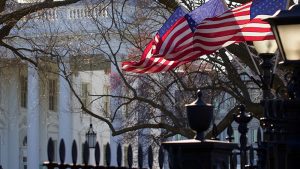The Federal Communications Commission (FCC), the U.S. Department of Agriculture (USDA), and the National Telecommunications and Information Administration (NTIA) announced an interagency agreement to coordinate the distribution of Federal broadband deployment funds.
Witnesses at today’s House Small Business Committee hearing stressed that community-based broadband expansion solutions are key to ensuring small businesses can best utilize broadband capabilities.
The Federal Communication Commission (FCC) announced that 2.3 million households have enrolled in the Emergency Broadband Benefit (EBB) Program in its first three weeks.
To close the broadband divide in both urban and rural America, the Federal government must focus on providing significant funding, ensuring accurate data, and work to ensure equity is baked into broadband expansion plans.
The Department of Education has launched an outreach campaign to alert K-12 and higher education students that they are eligible for a monthly discount on broadband internet service.
The Federal Communications Commission (FCC) announced that it has granted additional spectrum licenses for Tribal lands.
The Federal Communications Commission (FCC) has adopted the final rules to implement the Emergency Connectivity Fund Program, which will help schools and libraries purchase the technology needed to close the homework gap.
New research on broadband accessibility found that 77 percent of Americans now have access to low-priced wired broadband plans in the first quarter of 2021.
The Federal Communications Commission (FCC) announced the start of the Emergency Broadband Benefit (EBB) program, which will allow eligible households to receive a monthly discount off broadband service costs from an approved provider as of May 12, 2021.
Senate Democrats and Independents reintroduced legislation this week to expand the Federal Communication Commission’s (FCC) 2.5 GHz Rural Tribal Priority Window.








